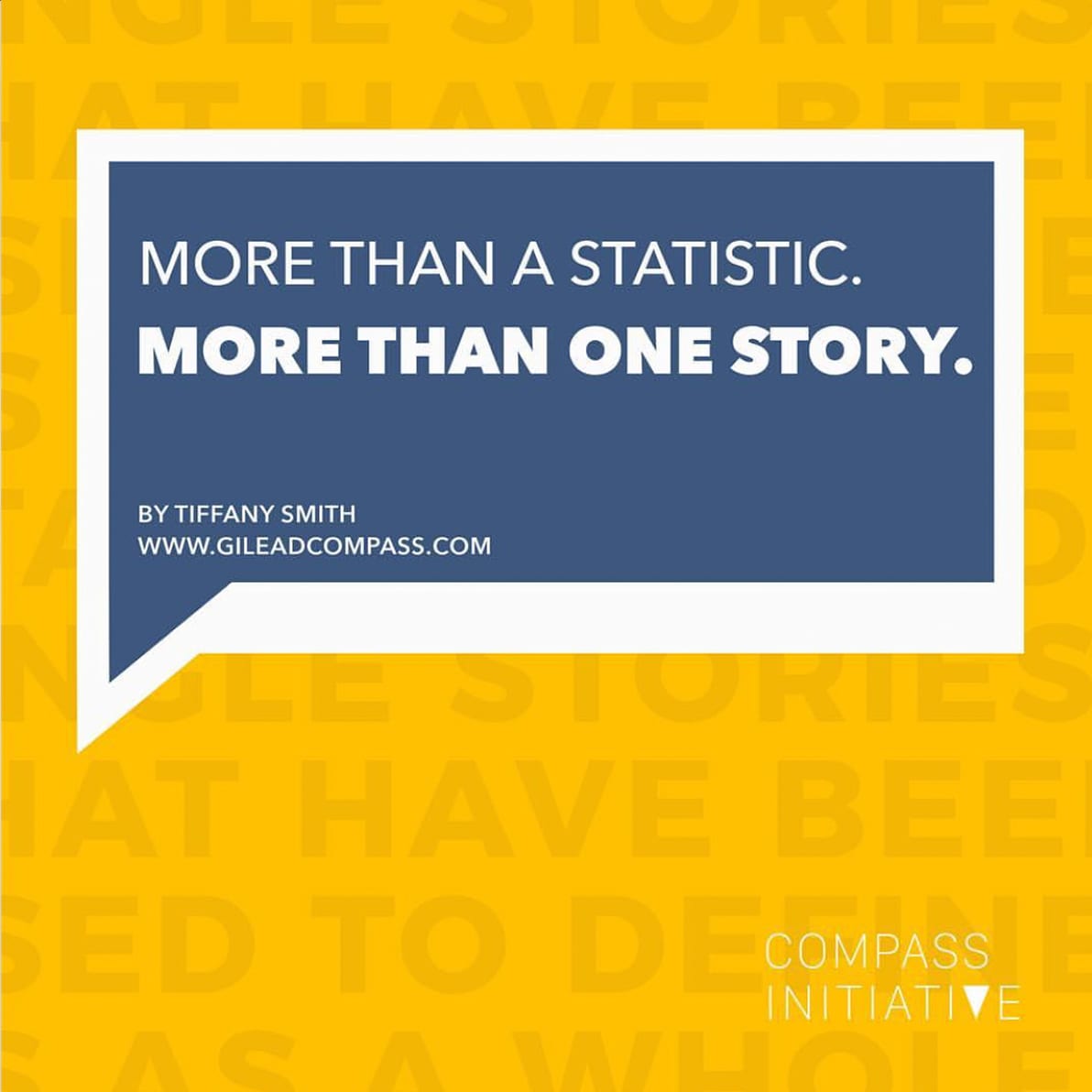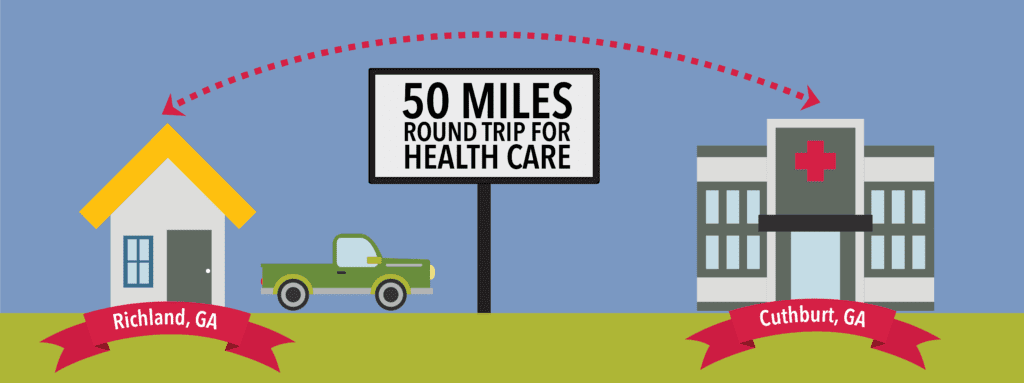Q&A with COMPASS Coordinating Center Directors
Our first contributors need no introduction. Well-known in their respective fields, Patrick Sullivan, PhD, DVM, Nic Carlisle, JD, and Samira

Tiffany lives in Atlanta, GA and works with the Emory COMPASS Coordinating Center. She previously worked for the Peace Corps and USAID, stationed in Zambia, from 2015-2018. She is passionate about addressing health disparities, sustainable development, and culturally appropriate care.
I remember the first time I saw this graphic that Black/African Americans account for a higher proportion of new HIV diagnoses, those living with HIV, and those to ever receive an AIDS diagnosis. In 2016, we accounted for 44% of all HIV diagnoses, even though we only made up 12% of the population. I was floored by this statistic. How can we control the epidemic? How can we educate, destigmatize, and protect ourselves more? My thoughts were solely from a communal perspective and I did not think of how these statistics were received by individuals outside of the Black/African American community.

It wasn’t until a fateful day during a conversation with someone who lived on my college dorm floor. He asked me, “Tiffany, you’re really into public health issues, right?” “Yes,” I replied emphatically. “Then what do you think about the fact that 59% percent of all black women have HIV?” My eyes nearly bulged out of my head as I tried to wrap my head around this complete misrepresentation of facts. I calmly replied, “Well, by the end of 2015, of the total number of women living with diagnosed HIV, 59% of them were black. NOT 59% of ALL black women.” He then replied, “Why do you think that is? Is it because many of them are uneducated and low income and they don’t know about safe sex?” I began to vociferously ponder over what I deemed to be a loaded and blanket statement to make about an entire population of people. However, I do believe there was a reason for his ignorance. He mischaracterized Black/African American people as being overwhelmingly poor and uneducated, and that as the reason for their health outcomes. This is a dangerous, narrow story that does not take into consideration the myriad of factors that are at play. However, as a member of the community, I find it necessary to talk about the socioeconomic determinants that affect health outcomes.
Stigma, fear, discrimination, and homophobia may be some of the reasons why Black/African Americans are at greater risk, but lack of access to quality care, lower income levels, lower educational levels, and higher rates of unemployment are also large determinants of greater HIV risk. So, was my floormate correct about the education rates and lower income rates? At face value, sure. But that is not because of some inherent and biological inability to succeed and be healthy. Let me paint a picture for you that might make it easier to understand the whole story.

Imagine, for example, you live in Stewart County, GA. Stewart County has an estimated 47.3% Black/African American population. From 2011-2015, an estimated 22.2% of the population was uninsured, 58.8% of the population 25 years and older did not have a high school diploma, and 38.4% of households lived below the federal poverty line.[1] Stewart County was singled out by the U.S. Census Bureau as being one of the poorest counties in the nation. To make matters worse, the Stewart-Webster hospital, the only hospital in Stewart County, closed in March 2013. The only option for residents of Stewart County is to drive 25 miles away to get to the nearest hospital in Cuthbert, GA; and many have limited access to transportation. The hospital was the largest employer in the area and has left many people unemployed still to this day.
If I knew then what I know now, I would have asked my floormate if he had lived in Stewart County, how would he seek care for HIV? If he lived in Stewart County, how would he have access to educational materials on prevention and care? How would he have the means to drive to the nearest hospital? If he was able to drive to the nearest hospital, how would he have been helped without insurance? How would he have enough money to cover the cost when the county’s largest employer shut down? Stewart County is just one example of many communities in the United States that have been negatively impacted by a lack of access to quality care. It is important to visualize the realities of living in an area where there is such a lack of access to the necessary resources to improve health outcomes.
From 2011 to 2015:

Even though we have come far, we still have a long way to go. However, let us not be bogged down by statistics and single stories that have been used to define us as a whole. Nigerian author Chimamanda Ngozi Adichie said, “The single story creates stereotypes and the problem with stereotypes is not that they are untrue but that they are incomplete. They make one story become the only story.” My floormate made the statistics he knew the only defining factor about the Black/African American community. That is who we were to him. I tell you that we are so much more than one description and multiple statistics. We are complete. We are complex and diverse. Organizations, such as the Black AIDS Institute, have built a coalition of Black/African American leaders to advocate, educate, and disseminate all the pertinent information in order to stop the epidemic. The work is being done FOR us and BY us. We acknowledge the problem and we are at the forefront of unapologetically creating and implementing the solution.

[1] https://gis.cdc.gov/grasp/nchhstpatlas/charts.html
[2] https://www.cdc.gov/hiv/group/racialethnic/africanamericans/index.html
Our first contributors need no introduction. Well-known in their respective fields, Patrick Sullivan, PhD, DVM, Nic Carlisle, JD, and Samira
Column By: Tiffany Smith Tiffany lives in Atlanta, GA and works with the Emory COMPASS Coordinating Center. She previously worked
Emory University COMPASS Coordinating Center is excited to announce a monthly webinar series geared towards building the organizational capacity of
Column By: Kheyanna Suarez Hailing from the beautiful island of St. Croix, U.S. Virgin Islands, Kheyanna has spent a majority
©2025 Emory University, Inc. All rights reserved.
When you click this link, you will be directed to an external webpage hosted by LearnUpon LMS.
Kindly note that registration is required, and it’s entirely free of charge.
To access the learning modules, you will need to create a new login, as this platform operates independently and is not affiliated or connected with OpenWater or any other platforms used by the Gilead COMPASS Initiative®.